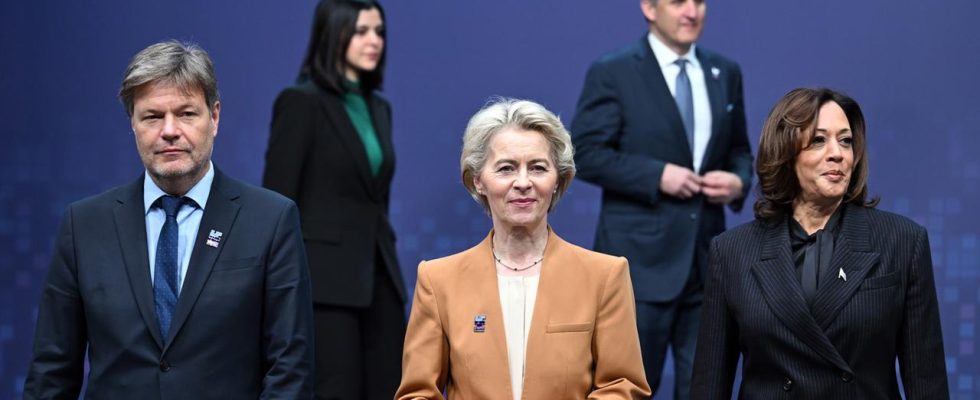Artificial intelligence is already omnipresent, but the increasingly powerful technology has barely been regulated. At the first international summit, the states looked for common solutions.
At the first international summit on the security of artificial intelligence, states sought ways to improve cooperation.
Vice Chancellor Robert Habeck (Greens) said before the deliberations in Milton Keynes, England, that the technology could make many things easier and more efficient, “from climate protection to weather data and early warning systems, from disease detection to therapy systems.” But he also pointed out the possible misuse of the technology.
A first step together
The conference, which was attended by representatives of almost 30 countries, including China, as well as large technology companies, is seen as an early step towards international agreement on the regulation of the rapidly developing sector. There are also efforts to set standards within the G7 countries as well as in the USA and the European Union.
Software with artificial intelligence (AI) is already ubiquitous, but is usually narrowly specialized for tasks. It can be found, for example, in image enhancement, in text-based autocorrection, in chatbots, which are gradually being used instead of hotlines, and in healthcare, for example to analyze symptoms.
Artificial intelligence: opportunity and risk at the same time
In a top-level meeting with, among others, Federal Economics Minister Habeck, British Prime Minister Rishi Sunak, US Vice President Kamala Harris, UN Secretary-General António Guterres and EU Commission head Ursula von der Leyen, four risks of artificial intelligence were identified, according to those involved. The impact on the labor market and social cohesion would have to be taken into account. People must be the focus of technology.
The view is that it is also about finding a balance between innovation and regulation. AI development must be given enough scope to develop. Care must be taken to ensure that development is not too severely affected by regulation. However, the representatives of the federal states did not always agree on this question. The top group also emphasized that small countries should also have access to AI. Real competition must emerge so that the market is not dominated by large “players”, i.e. large IT companies, especially from the USA.
Wissing: Don’t lose touch
Before departing for England, Habeck said that the EU wanted to regulate the use of AI through a regulation. But it’s not about restricting the technology itself. In addition, equal competitive conditions must be created internationally.
Von der Leyen emphasized that we should learn from other technologies. Nuclear power was also used for good purposes such as generating energy, but also as a bomb. Free and well-equipped researchers are needed to assess risks. She also spoke of the fact that ongoing negotiations on an “EU AI law” are discussing the establishment of a European Office for AI. This could enforce common rules in all 27 EU states, explained von der Leyen.
At the start of the meeting, Digital Minister Volker Wissing (FDP) warned against losing sight of the opportunities offered by technology. Wissing said on Wednesday that he had therefore advocated a code of conduct that would act as a bridge between European and US rules. The EU must focus even more clearly on the opportunities offered by the new technology, otherwise there is a risk of being left behind.

